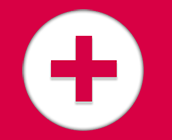Health information technology (HIT) is at the crossroads of critical patient care and technology. For students wishing for a more tech-based path, yet a career that’s still in high demand, HIT is a great choice.
Health Information Technology: Caring for Patients Behind-the-Scenes
HIT technicians are responsible for a different kind of patient care. While doctors and nurses might provide face-to-face care, HIT professionals ensure the patient’s medical data is up-to-date and secure for the continuing of care. They work behind-the-scenes to improve healthcare for each patient that enters a medical facility.
There are many career paths to choose from within the HIT niche:
- Medical Records Technician
- Health Information Technician
- Certified Coding Associate
- Medical Records Coder
- Cancer Registrar
- Coding Auditor
Careers within this niche are growing fast. According to the Bureau of Labor Statistics, health information technician careers are expected to grow 8% between now and 2029. This is much faster than average growth.
Technology Is Critical in Healthcare
Face-to-face care is important for the health and wellbeing of patients. Yet, this type of care would be impossible without technology to support it. For example, electronic medical records (EMRs) enable caregivers to see a patient’s history and current medical care. This improves the type of care they can provide in the moment.
Technology is also the only way for health organizations to comply with new regulations requiring the digitization and improvement of patient medical records. Specialized technicians are required to help with this process.
Becoming a Health Information Technician
The path towards starting a HIT career starts with a high school diploma or GED. From there, you’ll need to attend an accredited Health Information Technology program, such as the one offered through Cambridge. During this program, you’ll learn everything you need for career success, including medical terminology, coding and data structure.
Earning Certification
After program completion, you can also seek certification. For example, you can obtain your Certified Coding Associate (CCA) certification for medical coding. Or you can obtain your Registered Health Information Technician (RHIT) certification. These additional certifications help prove your knowledge in your field.
Learn More About Health Information Technology Today
Cambridge College of Healthcare and Technology offers our Health Information Technology program to students interested in a HIT career. To learn more about the program or to apply today, give us a call at 877-206-4279 or send us a message. The time is now to start reaching for your career goals.
More on


